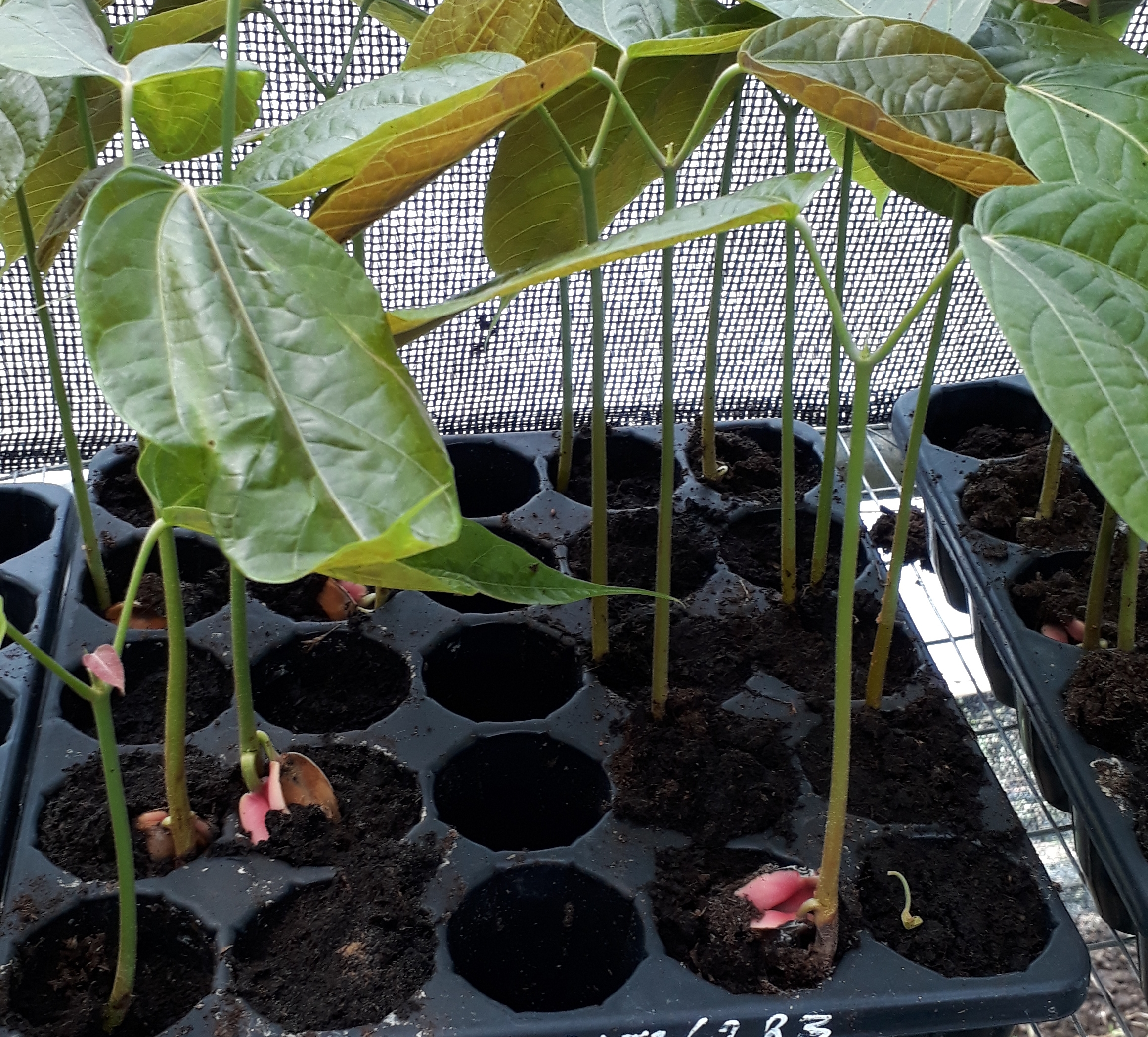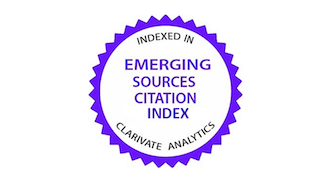Germination and growth of Sterculia colombiana in Arosemena Tola, Napo, Ecuador
DOI:
https://doi.org/10.15517/am.v34i2.51104Keywords:
primary forest, in situ, ex situ, developmentAbstract
Introduction. The Amazon region has a great plant diversity, but studies on their propagation and growth have been carried out in few species. Objective. To evaluate the in situ and ex situ germination of Sterculia colombiana and its growth characteristics after planting in ground covers of primary forest and intervened areas. Materials and methods. The study was carried out in Napo, Ecuador, in the period 2019-2020. The germination of S. colombiana was characterized in the variables: days and percentage to emergence, plant height, stem diameter and number of leaves, under greenhouse conditions and planted at the collection site. The plants obtained in the germination test were transplanted to a ground cover of primary forest (in situ) and an intervened area with replacement vegetation (ex situ). Linear, quadratic, cubic, exponential, and logarithmic growth models for stem height and diameter were evaluated. The air and soil temperature and the physical-chemical characteristics of the soil were recorded. An analysis of variance was performed to determine differences in growth and survival between the plantation sites and between the plants obtained in the in situ and ex situ tests. Results. The seedlings obtained from greenhouses reported fewer days to emergence and higher values in the rest of the variables evaluated than those grown in situ. The plants developed in the different evaluated covers, without significant differences in growth at the end of the study, only a significant correlation at 5 % between stem diameter and air temperature was reported. Conclusions. Sterculia colombiana germinated in a greenhouse and developed in the transplant sites, without this influencing its growth. Temperature was the only factor that reported significant correlations with growth at the end of the evaluation period.
Downloads
References
Abril-Saltos, R. V., Ruiz-Vasquez, T. E., Alonso-Lazo, J., & Cabrera-Murillo, G. M. (2018). Crecimiento inicial de Eugenia stipitata, Inga spectabilis e Inga edulis en Napo, Ecuador. Agronomía Mesoamericana, 29(2), 275–291. https://doi.org/10.15517/ma.v29i2.28759
Aiyeloja, A. A., & Azeez, A. K. (2010). Growth response of Sterculia setigera del. to different types of fertilizers and watering regimes in the nursery. Journal of Agriculture and Social Research, 10(1), 127–139. https://doi.org/10.4314/jasr.v10i1.67534
Bayen, P., Lykke, A. M., Ouédraogo, A. & Thiombiano, A. (2015). Population Structure in Natural Stands, Seed Germination and Seedling Growth of Sterculia setigera under Nursery Conditions in Burkina Faso (West Africa). International Journal of Plant & Soil Science, 7(4), 202–210. http://doi.org/10.9734/IJPSS/2015/17562
Bravo, C., Ramírez, A., Marín, H., Torres, B., Alemán, R., Torres, R., Navarrete, H., & Changoluisa, D. (2017). Factores asociados a la fertilidad del suelo en diferentes usos de la tierra de la Región Amazónica Ecuatoriana. Revista Electrónica Veterinaria, 18(11), 6–12.
Cerón, C., & Montalvo, C. (1998). Etnobotánica de los Huaorani de Quehueiri-ono Napo- Ecuador. Abya Ayala.
Domínguez-Calleros, P. A., Rodríguez- Laguna, R., Capulín-Grande, J., Razo- Zárate, R., & Díaz-Vásquez, M. A. (2017). Influencia de factores edáficos en el crecimiento de una plantación de Pinus greggii Engelm en Santiago de Anaya, Hidalgo, México. Madera y Bosques, 23(2), 145–154. https://doi.org/10.21829/myb.2017.2321522
de la Torre, L., Navarrete, H., Muriel, P., Macía, M., & Balslev, H. (Eds.) (2008). Enciclopedia de las plantas útiles del Ecuador (1ª ed). Herbario QCA de la Escuela de Ciencias Biológicas de la Pontificia Universidad Católica del Ecuador, & Herbario AAU del Departamento de Ciencias Biológicas de la Universidad de Aarhus.
Di Rienzo, J. A., Casanoves, F., Balzarini, M. G., González, L., Tablada, M., & Robledo, C. W. (2020). InfoStat (versión 2020) [software de computador]. Universidad Nacional de Córdoba. http://www.infostat.com.ar
Guevara, J. E., Fernández, D. M., Palacios, W. A., Rivas, G., Vivar. L., Pitman, N. C., Ulloa Ulloa, C., Cerón, C., Neill, D. A., Oleas, N., Altamirano, P., & ter Steege, H. (2019). Lista de árboles de la Amazonía Ecuatoriana. Base Nacional de Datos de Biodiversidad del Ecuador. Recuperado el 10 de mayo, 2022 de http://bndb.sisbioecuador.bio/bndb/checklists/checklist.php?cl=1&pid=1
Guevara, E., & Guenni, O. (2013). Densidad y longitud de raíces en plantas de Leucaena leucocephala (Lam) De Wit. Multiciencias, 13(4), 372–380.
Guevara, J. E., Mogollón, H., Pitman, N. C. A., Cerón, C., Palacios, W. A., & Neill, D. A. (2017). A Floristic Assessment of Ecuador’s Amazon Tree Flora. In W. R. Myster (Ed.), Forest structure, function, and dynamics in western Amazonia (Chapter 2, pp. 27–52). Wiley Blackwell. https://doi.org/10.1002/9781119090670.ch2
Hartmann, H., Kester, F., Davies, F., & Geneve, R., (2014). Hartmann and Kester’s plant propagation: principles and practices (8th ed.). Pearson Prentice Hall
Herrera Villafranca, M. (2013). Métodos estadísticos alternativos de análisis con variables discretas y categóricas en investigaciones agropecuarias (Tesis de doctorado, no publicada). Instituto de Ciencia Animal.
Izquierdo Bautista, J., & Arévalo Hernández, J. (2021). Determinación de la materia orgánica del suelo por el método químico y por calcinación. Revista Ingeniería y Región, 26(1), 20–28. https://doi.org/10.25054/22161325.2527
International Business Machine. (2013). Statistical package for the social sciences (version 22). IBM. https://www.ibm.com/es-es/spss
Instituto Nacional de Meteorología e Hidrología. (2006). Mapa de climas del Ecuador. https://www.inamhi.gob.ec/biblioteca/
Kleemann J., Koo, H., Hensen, I., Mendieta-Leiva, G., Kahnt, B., Kurze, C. Inclan, D., Cuenca, P., Noh, J., Hoffmann, M., Factos, A. Lehnert, M., Lozano, P., & Fürst, C. (2022). Priorities of action and research for the protection of biodiversity and ecosystem services in continental Ecuador. Biological Conservation, 265(1), Article 109404. https://doi.org/10.1016/j.biocon.2021.109404
León-Yánez, S., Valencia, R., Pitman, N., Endara, L., Ulloa Ulloa, C., & Navarrete, H. (Eds.). (2012). Libro rojo de las plantas endémicas del Ecuador (2a ed.). Pontificia Universidad Católica del Ecuador.
Ley-López, J. M., Avalos, G., & Chacón-Madrigal, E. (2016). Seedling growth and survival of five tree species in secondary forests and adjacent pastures in the montane rain forests of Southern Costa Rica. Revista de Biología Tropical, 64(4), 1565–1583. https://doi.org/10.15517/rbt.v64i4.22775
Liu, X., Nie, Y., & Wen, F. (2018). Seasonal Dynamics of Stem Radial Increment of Pinus taiwanensis Hayata and Its Response to Environmental Factors in the Lushan Mountains, Southeastern China. Forests, 9(7), Article 387. https://doi.org/10.3390/f9070387
López Medina S. E., & Gil Rivero A. E. (2017). Características germinativas de semillas de Theobroma cacao L. (Malvaceae) “cacao”. Arnaldoa, 24(2), 609–618. http://doi.org/10.22497/arnaldoa.242.24212
Martínez-Camacho, Y. D., Castillo-Argüero, S. Martínez-Orea, Y., & Sánchez-Coronado, M. E. (2018). Ecofisiología de la germinación de Acaena elongata (Rosaceae), una especie indicadora de perturbación de un bosque templado, al sur de la Ciudad de México. Revista Mexicana de Biodiversidad, 89(3), 806–814. https://doi.org/10.22201/ib.20078706e.2018.3.2306
Mejía, V., Orellana, D., & Cabrera-Barona, P. (2021). Cambio de uso de suelo en la Amazonía norte del Ecuador: un análisis a través de imágenes satelitales nocturnas VIIRS e imágenes LANDSAT. Universidad-Verdad, 78(1), 10–29. https://doi.org/10.33324/uv.v1i1.355
Moretti, A. P., Olguin, F. Y, Pinazo, M. A., Gortari, F., Vera Bahima, J., & Corina, G. (2019). Supervivencia y crecimiento de un árbol nativo maderable bajo diferentes coberturas de dosel en el Bosque Atlántico, Misiones, Argentina. Ecología Austral, 29(1), 99–111. https://doi.org/10.25260/EA.19.29.1.0.779
Pablo-Pérez, M., Lagunes-Espinoza, L., López-Upton, J., Ramos-Juárez, J., & Aranda-Ibáñez, E. M. (2013). Morfometría, germinación y composición mineral de semillas de Lupinus silvestres. Bioagro, 25(2), 101–108.
Pérez-Hernández, I., Ochoa-Gaona, S., Vargas-Simón, G., Mendoza-Carranza, M., & González-Valdivia, N. A. (2011). Germinación y supervivencia de seis especies nativas de un bosque tropical de Tabasco, México. Madera y Bosques, 17(1), 71–91. https://doi.org/10.21829/myb.2011.1711155
Quanyan, T., Zhibin, H., Shengchun, X., Xiaomei, P., Aijun, D., & Pengfei, L. (2017). Response of stem radial growth of Qinghai spruce (Picea crassifolia) to environmental factors in the Qilian Mountains of China. Dendrochronologia, 44(1), 76–83. https://doi.org/10.1016/j.dendro.2017.04.001
Reyes-Bautista, Z., & Rodríguez Trejo, D. A. (2005). Efecto de la luz, temperatura y tamaño de semilla en la germinación de Nolina parviflora (H.B.K.) Hemsl. Revista Chapingo. Serie Ciencias Forestales y del Ambiente, 11(2), 99–104.
Rodríguez Rojas, M., & Sibille Martina, A. M. (1996). Manual de identificación de especies forestales de la subregión Andina (1a ed.) Instituto Nacional de Investigación Agraria. https://bit.ly/3Hfv7lp
Román, F. R., De Liones, R., Sautu, A., Deago, J., & Hall, J. (2012). Guía para la propagación de 120 especies de árboles nativos de Panamá y el Neotrópico. ELTI Yale School of Forestry & Environmental Studies.
Sigala Rodríguez, J. Á., González Tagle, M. A., & Prieto Ruiz, J. Á. (2015). Supervivencia en plantaciones de Pinus pseudostrobus Lindl. en función del sistema de producción y preacondicionamiento en vivero. Revista Mexicana de Ciencias Forestales, 6(30), 20–31. http://cienciasforestales.inifap.gob.mx/index.php/forestales/article/view/205
SYSTAT Software Inc. (2002). Table curve 2D (version 5.01). https://systatsoftware.com/products/
Taghvaei, M., & Ghaedi, M. (2010). The impact of cardinal temperature variation on the germination of Haloxylon aphyllum L. seeds. Journal of Ecology and Environment. The Ecological Society of Korea, 33(3), 187–193. https://doi.org/10.5141/jefb.2010.33.3.187
The Weather Chanel (2020). Tiempo mensual Santa Clara, Provincia de Pastaza. IBM Busines. https://bit.ly/3zncutY
Torres-Torres, J. J., Medina-Arroyo, H. H., & Martínez-Guardia, M. (2018a). Germinación y crecimiento inicial de Hymenaea oblongifolia Huber en el municipio de Istmina, Chocó, Colombia. Entramado, 14(2), 230–242. http://doi.org/10.18041/1900-3803/entramado.2.4760
Torres-Torres, J. J., Medina-Arroyo, H. H., & Martínez-Guardia, M. (2018b). Germinación de semillas silvestres de Apeiba glabra Aubl. (Malvaceae) y crecimiento inicial de plantas. Ciencia y Tecnología Agropecuaria, 19(2), 323–335. https://doi.org/10.21930/rcta.vol19_num2_art:750
Valencia, R. (2011). Endemismo Y Estado De Conservación En La Amazonía. En León, S., Valencia, R., Pitman, N. C., Endara, L., Ulloa, C., & Navarrete, H. (Eds.), Libro rojo de las plantas endémicas del Ecuador (2a ed., pp. 38–44). Pontificia Universidad Católica del Ecuador.
Wan, Y., Yu, P., Li, X., Wang, Y., Wang, B., Yu, Y., Zhang, L., Liu, X., & Wang, S. (2020). Seasonal pattern of stem diameter growth of Qinghai spruce in the Qilian mountains, Northwestern China. Forests, 11(5), Article 494. https://doi.org/10.3390/f11050494
Way, D. A., & Oren, R. (2010). Differential responses to changes in growth temperature between trees from different functional groups and biomes: A review and synthesis of data. Tree Physiology, 30(6), 669–688. https://doi.org/10.1093/treephys/tpq015

Downloads
Additional Files
Published
How to Cite
Issue
Section
License
Copyright (c) 2023 Ricardo Vinicio Abril-Santos, Evelyn Aracely Villacis-Estrada, Micela Delsy Tapuy-Andy, Briyit Maryeli Pillco-Herrera, Jonny David Quishpe-Lopez, Katherine Pamela López-Adriano

This work is licensed under a Creative Commons Attribution-NonCommercial-NoDerivatives 4.0 International License.
1. Proposed policy for open access journals
Authors who publish in this journal accept the following conditions:
a. Authors retain the copyright and assign to the journal the right to the first publication, with the work registered under the attribution, non-commercial and no-derivative license from Creative Commons, which allows third parties to use what has been published as long as they mention the authorship of the work and upon first publication in this journal, the work may not be used for commercial purposes and the publications may not be used to remix, transform or create another work.
b. Authors may enter into additional independent contractual arrangements for the non-exclusive distribution of the version of the article published in this journal (e.g., including it in an institutional repository or publishing it in a book) provided that they clearly indicate that the work was first published in this journal.
c. Authors are permitted and encouraged to publish their work on the Internet (e.g. on institutional or personal pages) before and during the review and publication process, as it may lead to productive exchanges and faster and wider dissemination of published work (see The Effect of Open Access).



























